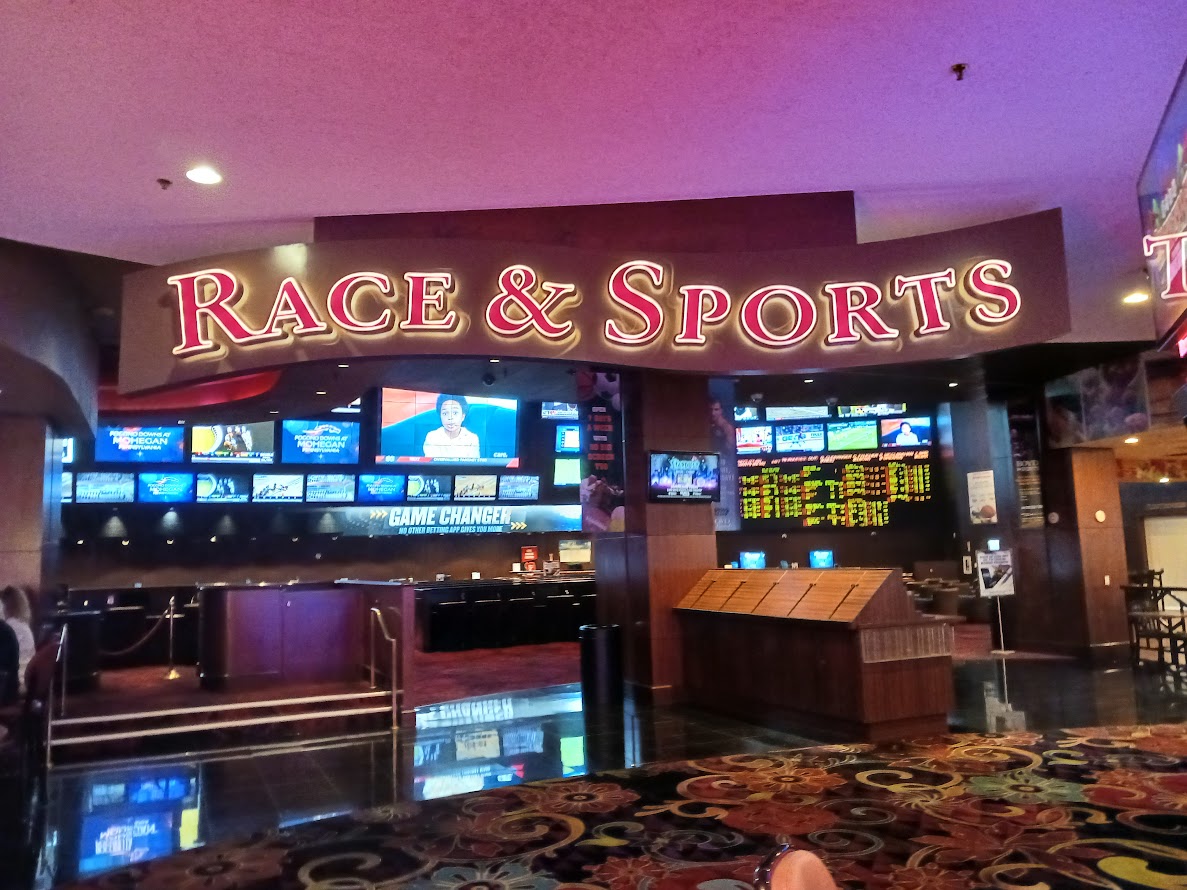Online sports betting exploded after the US Supreme Court overturned the Professional and Amateur Sports Protection Act in 2018. Today, 38 states have some form of legal sportsbooks. When North Carolina opens in March, there will be 30 online sports betting states.
I was in online poker when it became legal in 2013. It is only live in four states, even though live poker is legal in some form in 39. I often joke that sports betting has better lobbyists, but it’s probably more that online poker is a niche, where sports support media companies and politics. Just look at all the money governments spend on stadiums and media companies throw at sports TV contracts.
There are many great aspects of the new online betting industry. Getting it out of the shadows provides more help to responsible gambling policies, generates taxes, and brings jobs to the United States that were once offshore. It also created many great companies that discovered new talent. When done responsibly, sports betting is an inexpensive hobby. With that said, there is still room for improvement.
Biggest problems facing regulated online gambling
Several problems will eventually hurt the industry’s reputation. It is only a matter of time. The mainstream press is already running negative stories.
A few operators control the market
The regulated online gambling industry faces several problems. A handful of operators control about 80 percent of the revenue. Many small online sportsbooks left the market or will soon. This hurts competition. At some point, there will only be a handful of operators in most states. Most or all the small ones will eventually stop the bleeding trying to compete.
The solution: We must do more to preserve competition. Scaling the tax rate based on the handle is one way to do that. Reward small operators for hanging in there.
Sportsbooks should be required to post minimum limits
One of the biggest problems is that sportsbooks are not transparent about maximum bets. This allows it to take thousands from players management thinks are losers and $5 from winners. This is a responsible gambling issue. Sportsbooks claim bettors may use their knowledge to win. It’s time they allowed the opportunity.
The solution: Post minimum max bets for all players, then have a policy about how to get more money down. That can include allowing a line change before booking more action or capping everyone at the same amount.
The affiliate side could use work
The affiliate side of the business has the same problem. A handful of companies own almost the entire market. There are many good affiliate websites and writers. There are more that are built purely on SEO and provide useless and in some cases inaccurate information for clicks. These companies buy links from traditional media to boost their Google rankings, drowning out expert sites.
Licensing is another issue. Affiliates must pay most states a tax to do business with online sportsbook operators. The problem is that there is no way to know if any operator will work with you until you have the license. An affiliate company could pay $10,000 in licensing, only to discover that online sportsbooks only want to work with the largest companies. I learned this lesson the hard way.
These same operators pay large websites $1000 per player or a smaller fee with revenue share to send players. The large websites are often owned by massive internet media companies with little gambling knowledge. They pay cheap writers or use AI to generate content by copying it from authority sites without understanding the topic.
The affiliates are motivated to send as many players as possible to operators. It does not matter how they accomplish that. While there are several that create spectacular content, spreading misinformation and stealing content is fine for some. That is why it is so hysterical that there is such a thing as the “Responsible Gambling Affiliate Association.” One of its members habitually uses my work without licensing or proper sourcing.
In the past, rogue affiliates were ostracized from the industry. There needs to be more of the industry keeping each other in check like the unregulated affiliates and operators did and still do.
The solution: Level the playing field. All affiliates should be paid the same by each operator. That may even mean doing away with pay based on performance.
Leaving small websites out keeps offshore advertising alive
The regulated operators and affiliates regularly lash out at offshore sites. It is hypocrisy. One of the big reasons offshore sites continue to exist is the barrier of entry into the regulated affiliate business. Licensing fees and operators unwilling to work with small websites give those owners no other option but to promote offshore sites. It is shortsighted.
The solution: Operators who want to rid the internet of offshore sites should work with small websites. That takes away the incentive to work with offshores. Affiliates that want to stop this should work with smaller affiliates in terms of attribution, links, and partnerships, as opposed to stealing their content.
Some affiliate companies don’t care about responsible gambling
I see endless deceptive advertising on affiliate websites. All have been told not to use phrases like “risk-free” and “free bets” but some do anyway. While there are some good people and companies in this space, the goal is still to sign up as many players as possible. It is all about SEO. Providing useful content is too often secondary to clicks.
The solution: If a gaming jurisdiction has a licensing fee from affiliates, it needs to regulate those companies. Between content theft and responsible gambling violations, some of these companies don’t deserve to be in the space. Enforcement against unethical affiliates will help keep the industry clean. All it takes is one example to get the others to fall in line and comply with gaming regulations.
Punish unethical operators
In 2017, I was banned by WSOP.com after I spoke out about being pushed into gambling longer than I wanted. In my opinion, WSOP.com should have been punished harshly for this. Instead, Nevada regulators did nothing. I am not permitted to play online poker on the Nevada monopoly site.
Since I went public, 888, the company that operates WSOP.com, has been in serious trouble in other jurisdictions. It is clear that WSOP.com is not a legitimate poker site, yet it’s never been punished in the US.
The solution: Punish unethical operators, including taking licenses away from those that try to push people to gamble longer than they want.
How we got here
The biggest problem with the regulated online gambling industry is the lack of businesses familiar with the industry. Circa Sports is a great example of a company that understands its customers. Many others operate out of other countries because of mistakes the US Government and states made early in the online gambling game.
PASPA kept regulated sports betting from happening
The Professional and Amateur Sports Protection Act passed Congress in 1992. That law, overturned by the US Supreme Court, stopped the spread of sports betting. It left the monopoly for straight betting to Nevada. New Jersey had a chance to offer the same sportsbooks Nevada had but failed to pass a law allowing it by the end of 1993.
The answer is that passing PASPA hurt what could have been an industry for decades before it happened. Fighting that law at the time would have benefited the US and the future of the industry.
Then came the UIGEA
In 2006, former Senate Majority Leader Bill Frist snuck the Unlawful Internet Gambling Enforcement Act (UIGEA) into the Safe Port Act. If not for PASPA, this law probably never have seen the light of day. The attitude toward sports betting was negative because it was largely an unregulated, offshore business. The only reason that was the case is PASPA.
This was enough to scare most reputable online gambling companies out of the country as it doubled down on payment processing laws related to those businesses. The UIGEA gave fantasy sports a carveout, declaring it exempt. Daily fantasy sports did not exist at the time, but it was later used as an excuse for its legality, even though there are flaws in the argument that the UIGEA legalized the contests.
This pushed US companies out of the online gambling development space. That innovation was lost to European companies that now dominate the US market on both the operator and affiliate sides.
This loss of innovation caused several problems. It hurt the online poker industry, as demonstrated by the three American companies that tried to enter that space with proprietary software. All three – Pala Poker, Real Gaming, and Ultimate Poker – are out of business. Most online sportsbook companies use software developed overseas. Online casino games are a mix, though most video poker and table games run American software.
The UIGEA also allows the daily fantasy sports (DFS) industry to exist. Confusion over what the law does and does not allow caused legislatures and attorneys general to largely allow the games to exist under skill exceptions to gambling laws, even though it is clear there is luck involved in winning at DFS.
DraftKings and FanDuel are huge today because of the branding head start created by DFS. That advantage and a massive database of people interested in sports put those companies in the best spot when PASPA was repealed.
More should have been done to stop the UIGEA from becoming law. Since nobody cared to look behind the curtain of the law, it passed without any debate. Politicians who complain about where the industry is today seem to forget it was Bill Frist who got us here.




